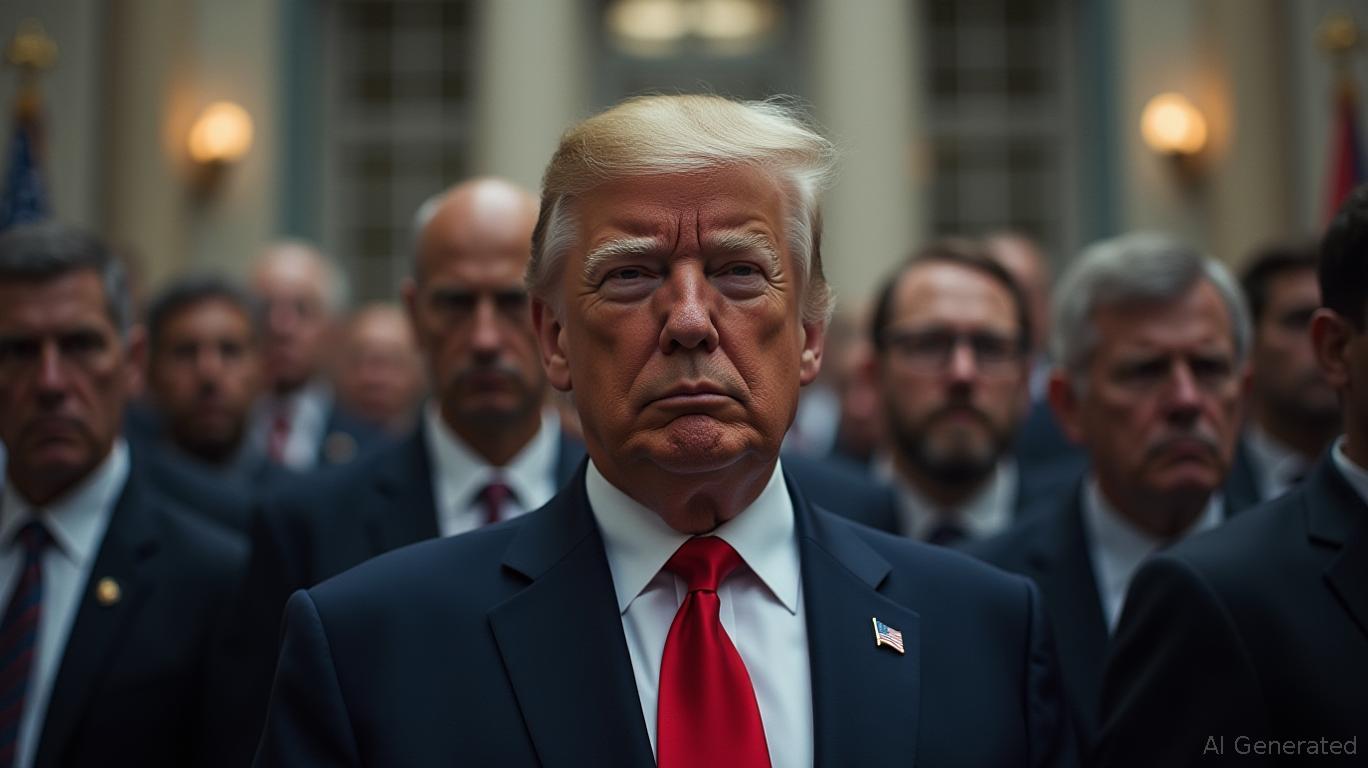Republicans Link Crypto Restrictions to Geopolitical Strategy Amid the Global Surge of CBDCs
- The U.S. House passed the Anti-CBDC Act, blocking Fed-issued digital currencies without congressional approval, aligning with Republican privacy concerns. - The bill, paired with the CLARITY Act, aims to preserve private-sector dominance in digital assets while establishing regulatory clarity for crypto markets. - Global CBDC advancements, particularly in BRICS nations, challenge U.S. dollar hegemony by enabling dollar-independent cross-border transactions. - Trump's administration prioritizes private-se
The U.S. government’s position on central bank digital currencies (CBDCs) has emerged as a key source of political conflict, with notable events unfolding as the country debates digital currency’s future. A significant step was the House’s approval of the Anti-CBDC Surveillance State Act, which blocks the Federal Reserve from creating or piloting a CBDC unless Congress explicitly authorizes it. Passing by a slim margin of 219–217, this act is the third major crypto-focused bill to clear the House during what has been labeled “Crypto Week” in Washington. Its main purpose is to prevent the Federal Reserve from distributing CBDCs directly to consumers, keeping digital assets in the hands of the private sector, though critics caution it could open the door to increased government oversight.
Efforts to halt CBDC development are closely linked to the Republican Party’s broader digital asset policy, which has frequently voiced concerns that government-backed digital money could threaten privacy and facilitate surveillance. The House’s move to pair the Anti-CBDC Act with the bipartisan CLARITY Act—which aims to clarify whether digital assets are securities or commodities—demonstrates a calculated strategy. This combined legislative package, approved mostly along party lines, is intended to discourage the creation of a U.S. CBDC and lay groundwork for digital asset regulation. Still, its outlook in the Senate is unclear, as Senate leaders are reportedly crafting their own legislation that omits a CBDC ban. This split underscores the ongoing disagreement between the House and Senate over the direction of U.S. digital currency policy.
On the world stage, the U.S. decision to hold back on CBDC development could affect the international financial system’s balance of power. A number of countries, especially those in the BRICS alliance, are actively working on or rolling out CBDCs as substitutes for the U.S. dollar in global trade. A recent report by
Domestic politics, especially under the Trump administration, further complicate the U.S. approach to CBDCs. President Trump has consistently promoted a prohibition on CBDCs, favoring private sector solutions for digital assets. His administration’s perspective is in line with many in the crypto space, who see the ban as a way to keep digital assets decentralized. Recent steps—such as forming a federal task force to review stablecoin and digital asset regulations—demonstrate a focus on preserving the dollar’s international role by encouraging private innovation. The administration’s support for stablecoins also reveals a desire to prioritize dollar-based digital assets over government-issued CBDCs.
Nevertheless, debates over CBDCs and their potential impact on U.S. global power continue. A recent RAND Corporation analysis finds that, although China’s advanced CBDC project is not an immediate threat to U.S. security, it could have strategic effects in the long term. The study points out that international governance of CBDCs could either bolster or weaken the current financial order, depending on how the U.S. and its partners respond. In this light, choosing not to pursue a CBDC may be a deliberate strategy to let private industry lead digital asset innovation, rather than competing directly with foreign governments.
The discussion around a U.S. CBDC also spotlights the larger geopolitical stakes of digital currencies. With 134 nations investigating CBDCs and 44 already in advanced testing, the global financial system is rapidly shifting. How the U.S. navigates regulation, global competition, and new technologies will determine the trajectory of digital currency growth. The House’s latest legislative moves are important, but they represent just a single facet of an increasingly complex and evolving financial world.

Disclaimer: The content of this article solely reflects the author's opinion and does not represent the platform in any capacity. This article is not intended to serve as a reference for making investment decisions.
You may also like
New spot margin trading pairs — SKY/USDT, ALGO/USDT, MERL/USDT!
Bitget Onchain trading system upgrade completed
Bitget Trading Club Championship (Phase 9)—Trade spot and futures to share 120,000 BGB, up to 2200 BGB per user!
New spot margin trading pair — ZKC/USDT!